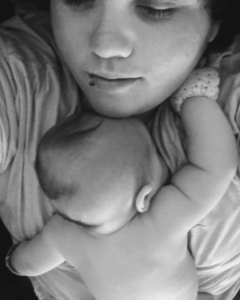
“I was in panic mode,” says Mariah about the prospect of aging out of foster care during the COVID-19 pandemic and recession.
“I was about to turn 21, with a one-and-a-half-year-old son in a new home, and I was barely getting on my feet and then COVID hit and I was unemployed.”
About 300 foster youth turn 21 every month in California. It can be a hard transition at the best of times, as they stop receiving housing aid and other support services. During COVID, with college dorms closing, unemployment surging, and no family to turn to, it could be overwhelming and even dangerous for many foster youth
By the time Mariah turned 21 on June 18, she had found a new job but it was in a toxic workplace. It also meant she could not continue in college while looking after her son, Dylan.
“Then two weeks after my birthday, my social worker told me I hadn’t aged out because they had extended care until next year because of COVID,” she recalls. “I was in tears.”
John Burton Advocates for Youth pressed for a suspension of ‘aging out’ of foster care as soon as shelter-in-place orders were issued in California. Governor Newsom quickly responded by suspending aging out through June 30, 2021. But it took more advocacy to get an additional $29 million in the state’s 2020-21 budget agreement to ensure that no foster youth would age out of foster care before July 1, 2021.
“The money that I get for Dylan and me is a huge help,” says Mariah.” But on top of that I also have my social worker, who I have had since turning 18. She has been more than amazing; she’s really like a rock for me. She helped me get into school and get college aid. And she connected me with mental health and other services after I moved from Santa Clara to Modesto.”
Mariah is putting the extended support to good use. “I’ve started law school so that I can be a paralegal,” she says. “Because the classes are all online, I can stay in school while looking after Dylan. Now I will be in a much better position when I age out next year.”
